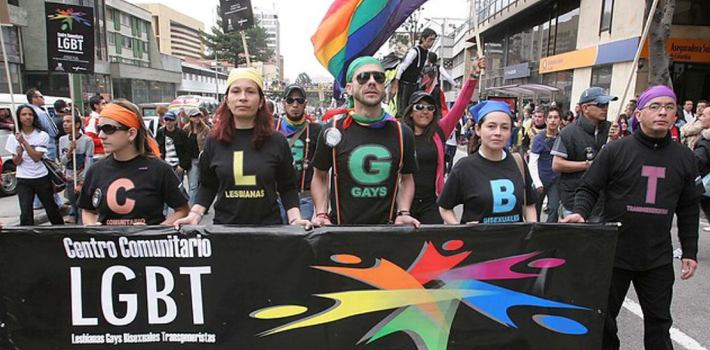
By Mario Felipe Daza Pérez
EspañolShocking news has hit Colombia recently: the country’s Constitutional Court has overruled Judge Jorge Pretelt’s decision on the issue of marriage equality. Now we are just waiting on a final ruling to “legalize” gay marriage.
The case will go up to another judge, this time the progressive-leaning Alberto Rojas, meaning all signs point to a pro-“LGBT” decision.
- Read More: Same-sex marriage in Colombia is increasingly closer
- Read More: Marriage and family came before the Colombian State
Even though the matter is both the source of rejoicing and worrying, strictly speaking, this cannot be called “legalization.” The same can be said of the landmark decision in Obergefell v. Hodges by the United States Supreme Court in June 2015.
As the economist Thomas Sowell once said, gay marriage is a product of clumsy reasoning and victimization: “I am a victim. Therefore, if you do not give me everything I ask of you and allow me to step on you as a doormat, then you are an evil and hateful person.”
Despite its lack of logic, it is clear that this tactic has had great political success. Because while you can enjoy a supposed triumph of civil liberties, the fact remains that these liberties depend on the state’s decision and are therefore not fully guaranteed.
If one wants to be free, one must be ready to fully accept freedom and all that it entails. Some will argue that one must take the freedom that is available, but can’t we go one step further?
As I said, while the decision has been a triumph for individuals, recognizing the authority of the state to dictate what is marriage or not and imposing a moral view on the rest of society defeats the purpose of the struggle for more freedom.
In Colombia, since the 2011 C-577 ruling, same-sex couples could already join in a civil union and form a family. It also urged Congress to legislate on the matter. Homosexual partners were able to go before judges and notaries to make their unions official.
The ambiguity and the contradiction of the demands of same-sex persons who wish to marry. Instead of pushing for rulings and legislation, what they should have asked the government and the state in general is to not stick their noses into the private lives of citizens to decide what they can or cannot do.
Economist Andrew Syrios was right to call the union between marriage and state an unhappy relationship. The institution of marriage has been a foundation of civilization, not of the state. The institution of marriage was kidnapped by the state, wanting to code it, just as the Catholic Church did.
It was during the sixteenth century that we began requiring marriages to be carried out under the “protection of the law.” And this has been the false dilemma ever since, that marriage needs to be validated by the state.
As Sowell says, “marriage is not a right that the government grants to individuals. It is a restriction of the rights they already have.” This applies to heterosexual, homosexual, and polygamous partners alike.
Couples can perfectly do whatever they want through agreements or contracts without a law managing their lives. If the goal is freedom, this is the way to go.
Otherwise, and this is what many activists are doing, is to get societal approval of their way of life under the guise of “equal rights,” a slogan that lately has rather meant special privileges for all kinds of groups.
Mario Daza is a lawyer, specialist in penal law, writer and blogger. Follow him at @mariodaza
 Versión Español
Versión Español












